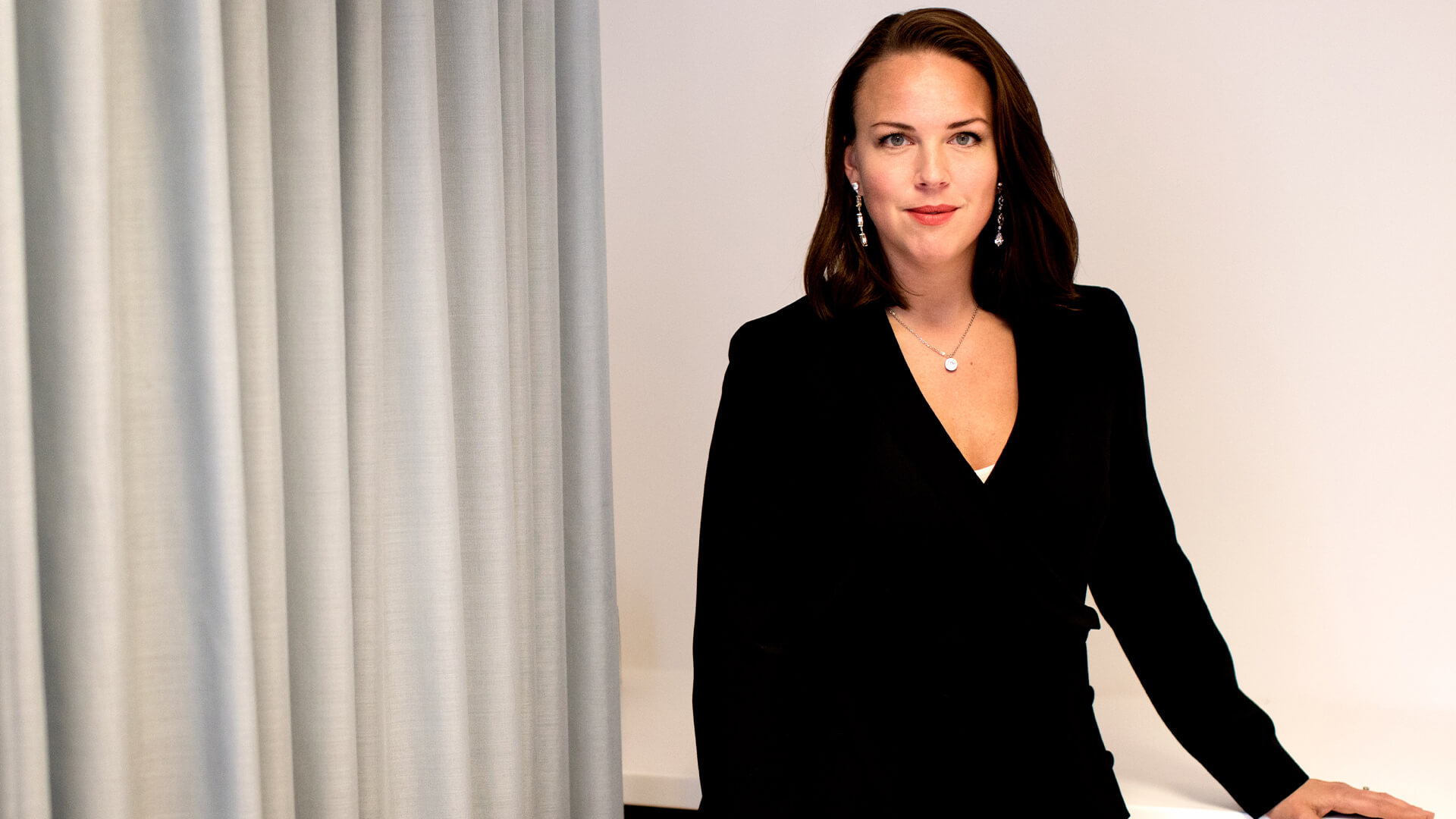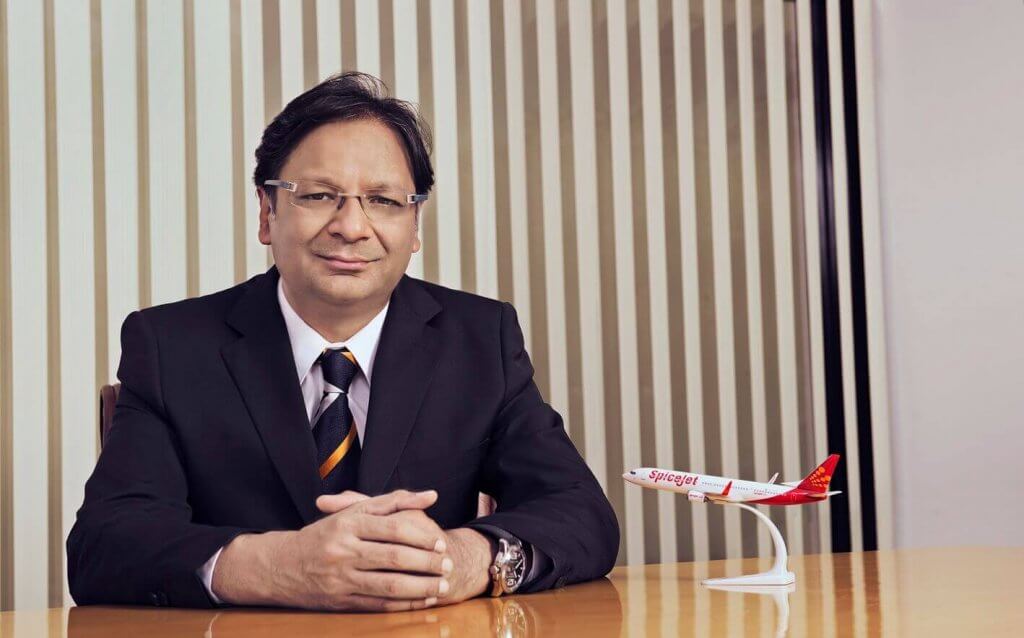
Westerberg & Partners is a Swedish boutique law firm handling complex disputes, often with an international angle. The firm is particularly strong in international arbitration, post-award proceedings and cross-border case work and has an excellent reputation for intellectual property rights protection and litigation. Despite the firm’s moderate size, the matters it handles often set precedents. Westerberg’s Dispute Resolution group is headed by Maria Fogdestam-Agius, who has been recognised as the Leading Public International Law Dispute Resolution Adviser of the Year – Sweden. Read on to find out more.
Maria Fogdestam-Agius is a public international law expert who is also a seasoned international dispute resolution lawyer. In addition to her disputes work, she also practices in the topical area of business and human rights and other legal aspects of corporate sustainability.
Based in Stockholm, Sweden, she is a partner of Westerberg & Partners, a firm formed in early 2019 by two break-away departments from one of Sweden’s largest firms, dedicated to general dispute resolution and intellectual property rights law. The firm services a number of high-value clients, including major Swedish corporations with household brands, the governments of several sovereign states, and a number of large European insurance companies. It also regularly appears in large-scale disputes in the construction sector.
The firm’s Dispute Resolution group has over the years taken on a higher share of international case work, in particular in arbitral cases and cases involving public international law aspects. It is now one of the most experienced public international law practices in Stockholm, with a capacity to handle a wide variety of cases. Its experience in the field includes cases that raise issues of corruption under international law, universal jurisdiction for crimes against humanity, international sanctions, state succession to treaties, and enforcement of awards against states. The team is also experienced in sovereign and diplomatic immunities, corporate human rights responsibilities, and the law relating to indigenous rights and to cultural heritage.
As the award-winning head of the Dispute Resolution group, Maria’s work invariably involves highly complex cases in technically challenging areas of law. On a personal level, Maria has acted for clients in litigation between sovereign states as well as investment treaty arbitration. Her practice has led her to appear before some of the most austere courts in her jurisdiction and field, including the Swedish Supreme Court and the International Court of Justice in The Hague.
Maria began her career as a practising lawyer in London in 2014, having recently defended her doctoral thesis in public international law at Uppsala University. After completing her dissertation on the alignment and fragmentation of international case law, she decided it was time for a switch away from academia and took up work at Volterra Fietta in London, working as a practising lawyer solely within the niche of public international law. The work there was very varied, and Maria covered a lot of ground servicing a first-class client list, including governments from diverse states on multiple continents, major international corporations, and local entrepreneurs on diverse legal matters such as international trade and investment, issues arising under the international law of the sea, laws governing the international use of force, international humanitarian law, international human rights law, diplomatic law, the law of state immunity and jurisdiction, to name but a few. This first role was a remarkable snapshot of internationalism, with colleagues present from some 20 different countries, and many languages spoken around the office on a daily basis. The beauty of this diversity meant everyone was forced to sharpen their cultural awareness and knowledge of how different legal concepts translate to individuals with different legal training.
During the COVID-19 pandemic, Maria chose to relocate back to Sweden and join the firm at Westerberg & Partners, where she found that the local market for public international law had considerably matured since she left for London. Westerberg & Partners boasted an impressive portfolio of involvement in public international law issues. The complexity of the work was encapsulated in her first appearance before domestic courts in Stockholm, arguing alongside colleagues Bo G.H. Nilsson and Ginta Ahrel before the Swedish Supreme Court that foreign State assets in a sovereign wealth fund under management by a central bank should not be immune from attachment and seizure to satisfy an award against that State. This was of course a terrific place to debut as an advocate in her new jurisdiction, which offered incredibly interesting legal issues to explore in a much-neglected area.
Public international law is emerging as an area of interest for a wider range of actors. As international treaties and conventions increasingly regulate with a higher level of detail and for the direct benefit of non-State actors, it is also becoming more common for individuals to have claims against foreign governments under bilateral investment agreements or human rights conventions. The legal aspects of sustainability and social governance (ESG) issues, and business and human rights are further examples where international law principles affect corporate entities directly and also impact for the better on individuals and local communities. Maria’s work in this growing sector involves, for example, appraising human rights risks associated with investments or loans placed by institutional investors; advising on indigenous rights in relation to commercial projects involving the use of land and other resources; providing analysis on cultural heritage issues; or designing human rights policies, due diligence protocols or other corporate business structures.
“Whenever appropriate, we seek to resolve conflicts without taking legal action, but we also take pride in our ability to manage legal proceedings, be it litigation or arbitration, efficiently and robustly. Our client base is largely international, and we work with many of the most discerning clients and law firms in the world.”
International law’s ability to touch ordinary citizens is a sign of its success. As the field has matured, traditional international law sources such as bilateral and multilateral treaties, customs and general principles are complemented by ‘soft’ legal norms such as declarations, resolutions, guidelines, recommendations and international standards. In many areas, such as in sustainability and human rights due diligence, soft international norms inspire domestic legislation that creates hard law obligations. It can be daunting to navigate this voluminous body of law to make the most of the governance tools this can offer for both companies and State entities, and it can strain available resources. This is where a practice such as Westerberg can give invaluable assistance.
International rules that regulate citizen interactions within their own state and with other countries can empower people and help lead to change. Neither States nor companies can afford to ignore litigation driven by coalitions of citizens, as has been seen for example in the field of climate change and human rights, where individuals and civil society have gone to court to force compliance with climate commitments or to force companies to rid their value chains of modern slavery. Such cases require also private entities such as companies to gain an understanding of their responsibilities under international law, and to find ways to meet them without jeopardising core commercial objectives, just as States must ensure their commitments can be met while pursuing meaningful State policy. Maria underlines that the Westerberg team prides itself on being able to combine these perspectives to do best for its clients.
Another key strength of the firm is in international arbitration. It is thoroughly experienced in proceedings before the Stockholm Chamber of Commerce (SCC) Arbitration Institute and also frequently participates in or co-organises events with the SCC to contribute its thought-leadership in arbitration matters. The team is often consulted by major international law firms on points of Swedish and international law in international arbitrations seated in Sweden.
The firm is particularly well-known for its work in post-award proceedings. This regularly involves public international law issues being heard before local courts, in particular where the underlying arbitration is based on commitments and obligations under international treaties, such as in investment arbitration. While a lot of the firm’s work is confidential, it is publicly known that Westerberg is currently acting for a State, defending an arbitral award that the claimants are seeking to have set aside before the Swedish courts. The award concerns a purported investment in Ukraine, where it is argued that the claimants were deprived of their investment in violation of the Energy Charter Treaty’s chapter on investment protection. The tribunal declined to take up the case, finding the investment to be tainted by corruption. The claim is excessively large and the legal principles at play are hugely significant.
In another post-award case in the public domain, Westerberg acts for investors seeking to enforce an arbitral award against a State by seizing assets invested by the State’s sovereign wealth fund in shares in Swedish publicly listed companies. In a hallmark win in 2021, the Westerberg team persuaded the Swedish Supreme Court that State saving for future purposes was not in itself a sovereign activity to make such funds unattachable for the State’s debts under an international award. This was notable as the Swedish Supreme Court’s decision departed from the stance taken by the Dutch Supreme Court, and the judgment is thereby part of an international legal conversation between these well-respected precedential courts. To be a cog in the wheel of this judicial conversation, in defence of client interests, nicely sums up Maria’s academic interests and her work as a practising public international lawyer.
For further information please contact Maria Fogdestam-Agius or visit https://westerberg.com/




















